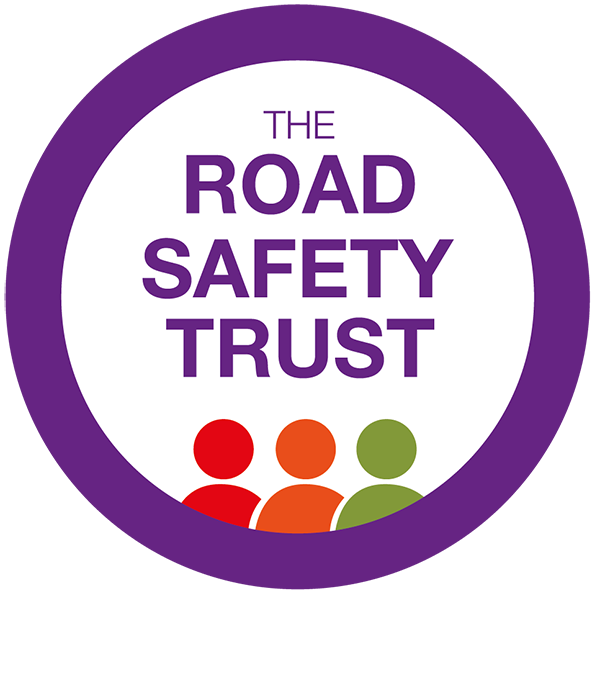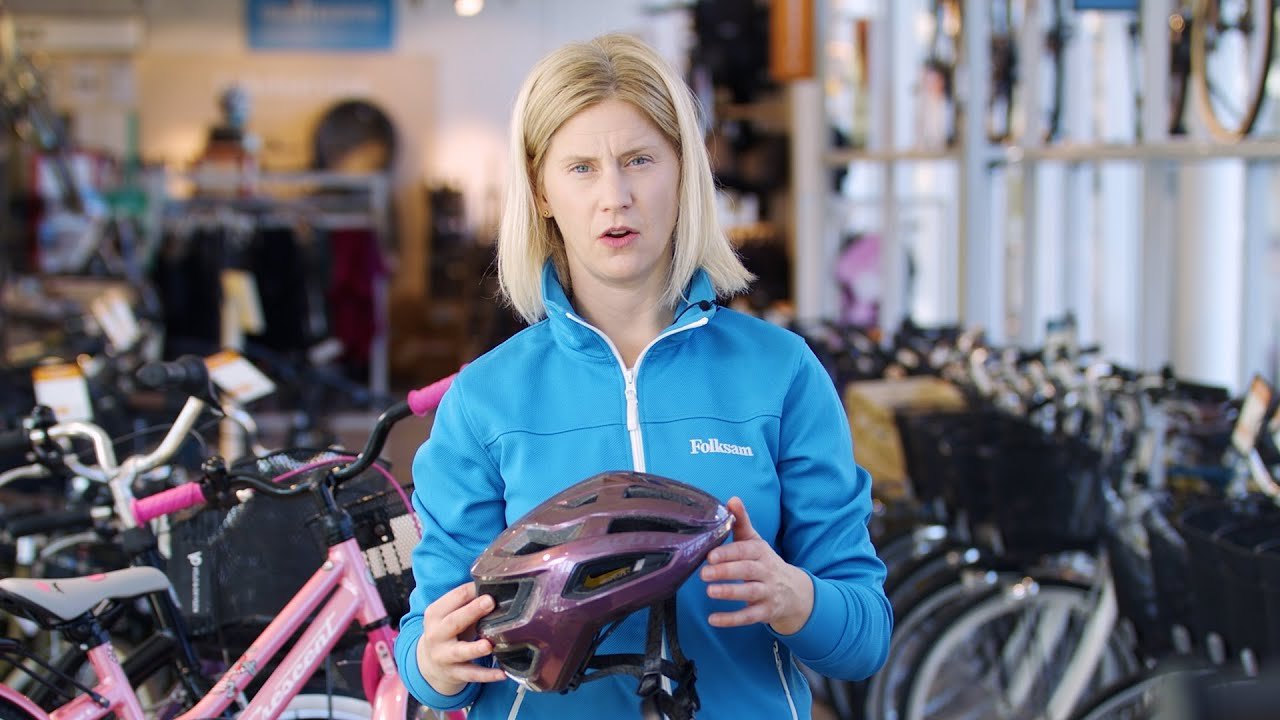Improving road safety for cyclists - project overview
Cyclists can make informed choices about which helmet to buy thanks to the extended safety tests carried out by Folksam Insurance Group in Sweden and co-funded by The Road Safety Trust to include helmets that are available for purchase in the UK.
Helena Stigson of Folksam Insurance Group
Safety test results
The results of three years of safety performance tests (2019, 2020 and 2021) mean that safety test data is now available for a total of 47 adult cycle helmets that are available to UK consumers and, for the first time in 2021, eight child cycle helmets. Click here for the three years of adult cycle helmet safety test results and click here for the 2021 child cycle helmet safety test results.
Coinciding with a significant increase in cycling and growing interest in e-scooters and e-bikes on the roads, the results of these tests reveal how some bicycle helmets offer significantly more protection than others and can be affordable eg. at £45 for the ‘recommended’ Specialized Align II adult cycle helmet or £50 for the ‘recommended’ Lazer Gekko child cycle helmet.
Don’t cycle helmets have to pass a safety test?
Yes, there is a minimum safety standard, EN 1078, that needs to be met in order for any bicycle helmet sold in the EU to obtain the CE mark. Unlike the safety rating scheme for motorcycle helmets, SHARP (1) or the Euro NCAP safety rating scheme for cars (2) however, the impact testing required by the existing EU minimum safety standard for bicycle helmets is considered to be rather lax (3).
The result is that bicycle helmets meeting EN 1078 standard requirements may not perform adequately in real-life crashes.
The EU test protocol focuses on helmet retention and on direct impact to the surface of the helmet with a target of reducing the risk of skull fracture. The existing minimum safety standard does not examine oblique impacts that inflict rotational forces on the head and which can result in consequent concussion injury to the brain.
Following our international roundtable to discuss the potential inclusion of oblique impact tests in the EN 1078 minimum standard (click here for the full presentations and conversation), it is clear that there is an intention to address this but it would not be included before 2024.
Folksam Insurance Group is one of the organisations around the world that developed a number of new test protocols that examine helmet performance both in direct impact and such rotational forces from oblique impact (4) and The Road Safety Trust co-funded its annual cycle helmet consumer safety tests in 2020 and again in 2021 in the interests of helping purchasers of cycle helmets to make an informed decision with regards to safety performance.
At the same time, there have been developments in helmet design targeted at providing protection to wearers from the rotational forces that result from oblique impact. The best known of these is the Multi-directional Impact Protection System (MIPS) technology. Helmets with MIPS have a liner that aims to reduce rotational motion of the head by allowing the helmet interior to slip against the surface of the head and thus reduce the risk of severe brain injury.
“Under the existing minimum standards system, prospective purchasers of bicycle helmets cannot be sure that a given helmet will provide a high degree of protection.”
The safety tests and results
Aware of the lack of consumer information available to UK purchasers of bicycle helmets, and of the claims made for the better safety performance of helmets with MIPS and similar systems, The Road Safety Trust first funded Folksam in 2020 to expand its usual annual tests of helmets on the Swedish market to include a number of helmets that are widely available to UK consumers.
This has now been done again in 2021 which, added to the 10 cycle helmets tested by Folksam in 2019, means that a total of 47 helmets available to the UK consumer have now undergone extended safety tests. Click here for up to date list of results or the adult cycle helmets. For the 2021 round of tests, nine child cycle helmets were also included – eight of which are available in the UK (click here for results).
There are far more than 47 adult cycle helmets and eight child cycle helmets available on the market and it is not possible to test all of them, so no conclusions should be drawn about the performance of helmets that have NOT been included in this round of tests or in previous annual test rounds carried out by Folksam.
Five physical tests are conducted by Folksam: two shock absorption tests with straight perpendicular impact and three oblique impact tests. The video below helps to explain the tests done and the full reports for 2021 also outline the tests carried out in more detail.
The tests are performed by Research Institutes of Sweden (RISE), which is accredited for testing and certification in accordance with the European standard. Computer simulations are subsequently carried out to evaluate the risk for concussion.
So far, eight adult cycle helmets which are readily available to UK consumers have been given the ‘recommended’ label over the three years of testing. See the results listings for information on how Folksam grades the helmets tested each year.
(1) https://sharp.dft.gov.uk
(2) https://www.euroncap.com/en
(3) See eg. https://www.helmetfacts.com/standards/en-1078/ and https://www.cyclehelmets.org/papers/c2023.pdf
(4) https://cyclehelmetroundtable.org/agenda/helena-stigson/
Next steps
This information is designed to assist cyclists with their buying decisions and retailers in the advice they may share with customers when considering the safety element of cycle helmets available.
The Road Safety Trust will continue working with partners so that extended safety tests can be carried out for the benefit of UK consumers and is also progressing discussions about a harmonised rating scheme for consumers in Europe.
“Road Safety Trust hopes that these test results will help to inform cyclists in the UK when they come to buy their helmets, and also encourage helmet manufacturers to raise their game and bring to market new helmet models that perform at least as well as the best existing models.”
Downloads
Here are some reports that have been produced so far:
Adult Cycle Helmet Safety Test Results 2019, 2020 and 2021



